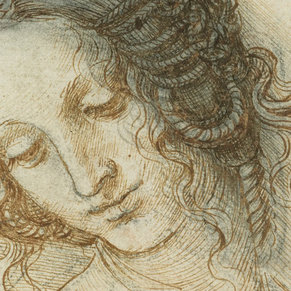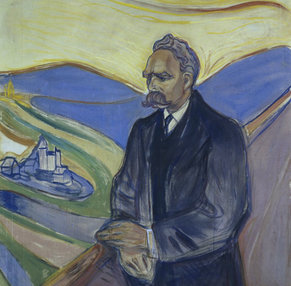
Jewish Folklore
The phrase "this too shall pass" does not appear to originate in ancient Jewish scripture. It first appears in Jewish literature in the nineteenth century. The phrase was first attributed to King Solomon, in non-Jewish sources, with variations of the following story that appear have emerged in the mid-19th century†.King Soloman wished to humble one of his ministers named Benaiah so he requested that Benaiah bring him a ring that has magic powers that can make a happy man sad and a sad man happy.
Benaiah searched high and low for such a ring and finally ended up at a merchant in one of the poorest quarters of Jerusalem. The merchant was stumped with this request but soon his Grandfather appeared from a back room. Without saying a word, the old man took a gold ring from their display and engraved it with "this too shall pass."
When Benaiah returned to King Soloman, the king and all his ministers asked with delight if Benaiah had found the ring. They knew Benaiah's mission was impossible and smiled in anticipation of his humiliation.
Benaiah handed King Soloman the ring and his smile faded as he read the inscription.
The implication of the story above is that, as a man of incredible wealth, wisdom and power, the inscription made King Soloman sad as he was reminded of the impermanence of things.Benaiah searched high and low for such a ring and finally ended up at a merchant in one of the poorest quarters of Jerusalem. The merchant was stumped with this request but soon his Grandfather appeared from a back room. Without saying a word, the old man took a gold ring from their display and engraved it with "this too shall pass."
When Benaiah returned to King Soloman, the king and all his ministers asked with delight if Benaiah had found the ring. They knew Benaiah's mission was impossible and smiled in anticipation of his humiliation.
Benaiah handed King Soloman the ring and his smile faded as he read the inscription.
Persian Folklore
The 13th century Persian Sufi poet Suft Farid al-Din Attar of Nishapu recounted a fable of a king who asks a group of wise men for a ring that will make him happy when sad and sad when happy. The wise men debate amongst themselves and come up with the phrase "this too shall pass." This is the likely origin of the phrase. The phrase is often misattributed to other Sufi poets.Abraham Lincoln
There isn't much mention of the phrase from the 13th century to 17th century. It suddenly starts to appear in American periodicals around 1839 where it is attributed to an "Eastern monarch." From here, this was picked up by Abraham Lincoln who recounted the story as follows.It is said an Eastern monarch once charged his wise men to invent him a sentence, to be ever in view, and which should be true and appropriate in all times and situations. They presented him the words: "And this, too, shall pass away". How much it expresses! How chastening in the hour of pride!—how consoling in the depth of affliction!Abraham Lincoln appears to have helped popularize the phrase as it was commonly referenced after this speech and misattributed to Jewish scripture with the King Solomon version of the story.
~ Abraham Lincoln, address before the Wisconsin State Agricultural Society, Milwaukee, September 30, 1859; in Roy P. Basler, ed., The Collected Works of Abraham Lincoln, 1953
| Overview: This Too Shall Pass | ||
Type | ||
Interpretations | The impermanence of all things.A call to humility in glory and optimism in hardship. | |
Origin | Suft Farid al-Din Attar of Nishapu, 13th century Persian Sufi poet | |
Alternate Origin | The King Solomon version of the story likely originated with the 1852 work entitled Edward Fitzgerald's Polonius: A Collection of Wise Saws and Modern Instances.† | |
Popularized By | 18th century American periodicals and Abraham Lincoln | |
Related Concepts | ||
















